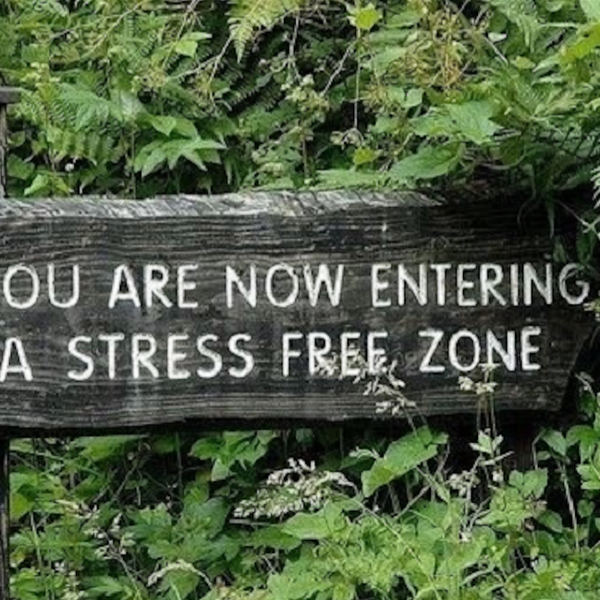Let’s face it; we all hate being told to “chill out”. Sometimes, though, it’s important for us to realize when we are becoming too stressed, agitated, or downright anxious and it’s time to take a (metaphorical) chill pill. According to the Center for Disease Control and Prevention, 18.1 percent of U.S. adults struggle with an anxiety disorder. Anxiety and extreme stress often go hand-in-hand with depression. When we become too stressed, those of us with an anxiety disorder (and even some without) become more prone to anxiety attacks or panic attacks.
As someone with generalized anxiety disorder and bipolar disorder, I have been in situations in which I can feel an anxiety attack or a bout of depression coming on, and don’t know what to do about it. Sometimes it feels like I’m trapped, like I just have to let my anxiety take over because I have no other choice. Recently though, I have taken to trying out new ways to find my calm in times of severe anxiety or even depression. Self-care is so important, especially when struggling with any mental illness. So, my fellow anxious humans, here are some very simple tried and true tricks for alleviating stress or anxiety in the moment.
- 1. Put down your phone.
- Sometimes, the main reason for my anxiety is the constant buzzing of my phone. Group messages can become stressors, as every speaks at once and so much information is communicated so quickly. Answering numerous texts or keeping up with activity on social media accounts can become exhausting, especially to a person with social anxiety. Switch your phone to “Do Not Disturb” mode (and maybe set it across the room) in times of severe anxiety to reduce the amount of stressors in your immediate environment. Furthermore, this will help you learn to be alone with yourself, without the pressures of society bogging you down.
- If you have a friend who is experiencing stress, don’t be offended if your friend does not respond to your text quickly. Temporarily freeing oneself from social restraints is a great way to reduce stress, and your friend is probably just trying to be present in their actual surroundings.
- 2. Light a candle.
- Maybe even three. Candles with soothing scents or even no scent at all can create a calming vibe, and these are the only vibes with which we want to surround ourselves in these times. Try to find candles with natural essential oils, instead of artificial, petroleum based ingredients, as these are known to be more efficient (and safe) when it comes to their calming effects.
- 3. Flick on some twinkle lights.
- Creating a calm space to relax during these times is very important. Harsh light can cause headaches and is not known to have any calming affects. A dim light, such as those in twinkle lights, can offer you a soothing safe space to clear your head. Plus, they’re a cute way to decorate a room and they create a fun atmosphere.
- 4. Turn on a Himalayan Pink Salt Lamp.
- This one is my favorite. Along with adding a natural, beautiful décor to any room, Himalayan Pink Salt Lamps are proven to have many health benefits. They cleanse the air in a room and reduce allergy or asthma symptoms by drawing in water molecules and foreign particles in the air, absorbing these molecules, and then releasing evaporated, clean water molecules into the air while trapping the foreign particles (dust, allergens, pollen). They also increase your energy level: they release negative ions into the air, essentially canceling out the positive ions that bog us down and cause fatigue throughout the day. Positive ions also keep us from experiencing quality sleep, so they can help you to sleep through the night (and can be turned off in the nighttime, as long as they are kept on in the day). They also are known to improve mood and concentration by giving your body the negative ions needed to supply more oxygen (and serotonin – the neurotransmitter that attributes to our happiness) to our brain and blood.
- You can buy a Himalayan Pink Salt Lamp at places like Walmart, Bed Bath and Beyond, or IKEA, usually for a reasonable price.
- 5. Wash your face.
- Warm water on the face stimulates the parasympathetic nervous system, the part of the nervous system that slows our heart rate and calms us down. Simply splashing water on the face helps to remind us of the here and now, bringing us back to reality when our minds are busy wandering beyond it.
- 6. Practice Progressive Muscle Relaxation.
- Progressive Muscle Relaxation is a technique that helps us to relax our muscles and teaches us the difference between tight, tense muscles and completely relaxed muscles. Find a quiet place and give yourself about 15 minutes to practice this. First, starting from your toes, tense the muscle as hard as possible for five seconds. In the toes, for example, you would curl your toes as tightly as possible and pay attention to the tension in the muscles. After those five seconds, release all tension in those muscles while exhaling. You will feel the tension leaving your body, and once you’ve worked your way up to your neck muscles, your body should feel more relaxed all over. Once finished, you have 1) distracted yourself from stress by focusing intently on your body, and 2) begun to teach yourself the importance of letting go of tension in the body.
- 7. Practice mindfulness.
- Mindfulness includes bringing your attention to the present, and accepting what is going on internally and externally. Mindfulness includes meditation: sitting cross legged with your eyes closed and your back straight. During this meditation, it is important to focus on your breathing. About 10 minutes of mindfulness a day can help reduce general anxiety, and using mindfulness when you can feel an anxiety attack coming on is a proven effective method.
- 8. Use essential oils.
- Essential oils come in many scents and serve many purposes. Certain oils can reduce anxiety, induce sleep, and even help your breathing. You can rub the oil on your wrists and temples, put a few drops in your bathtub, or use an aroma diffuser to spread the scent around your room.
- 9. Go outside.
- Escaping immediate surroundings can help us feel less trapped. When objects and walls are surrounding us, we can feel even more anxious. Going outdoors for a breath of fresh air and wide-open space is always a good idea when feeling stressed or anxious.
- 10. Enjoy a cup of tea.
- Drinking tea soothes our body and calms us down. Some teas such as those with chamomile and lavender have been proven to reduce anxiety and even induce sleep.
- 11. Keep a journal.
- 12. Turn on a Spotify playlist, or make your own.
- Music is a tried and true method of relaxation. Spotify’s “mood” playlists offer many options such as “Calm Down”, “Mood Booster”, “Life Sucks” (for when you’re feeling like wallowing), and even, “I just don’t know what to do with myself”. With all of these options specific to your mood, you can sit back, relax, and let Spotify introduce you to some fresh new music. You can also create a playlist of songs that you know will help you relax or cheer you up.
- 13. Give yourself positive affirmations.
- Tell yourself all of the things you love about yourself. Remind yourself that you matter, that you deserve to be here. Remind yourself that your anxiety, depression, and general frustration with life at the moment do not define you. Tell yourself these things out loud. Ex.: “I trust myself”, “I am strong”, “I matter, and my words, opinions, and actions matter”. Self-love (whether you fully believe these things or not) can go a long way here.
- 14. Accept that your stress or anxiety is affecting you.
- Admit, out loud, that this is an anxiety attack (or stress, depression, etc.). Tell yourself in the mirror that an anxiety attack is coming on, and accept it. Don’t get frustrated with yourself for feeling it, but rather realize that this is just a part of life that you are learning to deal with.
- 15. Let your anxiety attack run its course.
- Sometimes, an anxiety attack will happen no matter what you do. You can try everything, but it is inevitable. This is not your fault; you have not failed yourself. Sometimes, it’s best to just let your anxiety attack happen and pick yourself back up afterward. So let yourself feel your heart and mind race, and have a good cry. You’ll feel better once you know that it has run its course, and hopefully you can continue on with your day.
It’s important to realize that anxiety doesn’t just go away. You can’t pray it away; you can’t jog it away. A person with anxiety cannot just wake up one day and become a person without anxiety. Anxiety attacks and panic attacks will happen. Realize the difference between the two; anxiety attacks occur as a result of a general stressor in your life (it’s helpful to try and identify that stressor) and a panic attack occurs completely randomly and unprovoked, often without any cause or warning. Accept that this is the way things are, that this is the situation you are in. We all know that anxiety attacks are not planned, and they can ruin our plans or even our entire day. Next time you feel an anxiety or panic attack approaching, or simply feel that your stress is becoming unhealthy, you can take these very small, simple steps in attempt to alleviate your burden. Anxiety takes a tight grip on those of us struggling, but we cannot let this dictate our life.
So take a chill pill. Lay back, take it all in, and let it all go. Then get on with your everyday life.





















